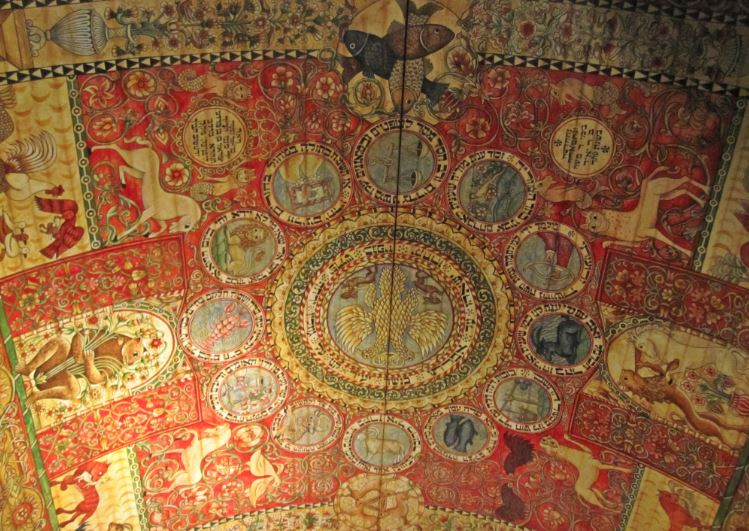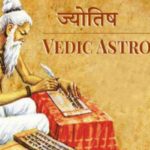Astrology is a leading topic of debate in the Jewish Community for over 2,000 years. Though traditionally not a Jewish practice, astrology took birth and shape into their teachings according to the Talmud. Astrology in Judaism has now become an acceptable subject and worth the discussion among Jews. However, there are varied opinions among several Jewish scholars, from outright rejection to validating it to the practical application of the concepts.
A Piece of History on Jewish Astrology
According to the Talmud, rabbis did believe in astrology, though they stated that Jews were immune from stars’ influences. It’s also a misconception that astrology is not accepted by the Torah. However, the fact is, the study of astrology in Judaism has its share of belief and significance, though highly in contrast to Vedic and Western astrology. The story goes like when Abraham was instructed by the Gods to observe the stars, the astrological formations showed he would not have children. Hence, his fate was transformed by God by shifting Jupiter from East to West.
Jews believe that an individual is fated to perish by astrological influences. However, they also state that their fate can reverse by performing good deeds and merit. In the Ancient Babylonian era, Jewish astrologers were referred to as Kaldiyyim. In Jerusalem Talmud and also in Palestinian Midrashim, astrologers and astrology make strong references to astrology. That period makes a point on the decisive role celestial bodies play to influence human life in the sublunar world. The patriarch Abraham is believed to be beyond stars’ subjection but the blessings he received is considered the gift of astrology.
Also, there are several instances connecting Astrology and Judaism where astrological predictions of future events have come true. The rabbis, however, were sceptical about the astrologers’ ability to interpret the stars accurately. Their point of debate was though astrologers can predict future events through the influence of the stars, they can misinterpret the understanding of the contents.
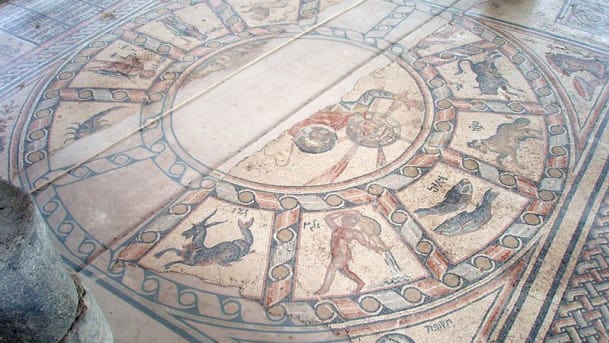
Significance of Jewish Astrology
It’s very important to know what astrology specifically means in the Jewish Community. Incidentally, Jewish astrology is as old as the community itself. According to Jewish astrology, idol worship is not considered but, worshipping the stars and Zodiac signs are acceptable. The stars are the subject matter in creating and influencing inhabitants on earth. You can see in the Hebrew Bible that stars have a significant relation to events on earth and, hence due to this, every day is unique and special.
The Talmud stresses that each planet has a profound influence on the individual born under its particular sign. However, the tendency of the effect of a particular planet can take different forms in different individuals. For instance, a person born under the influence of Mars will have the tendency to spill blood. He can be a slaughterer of animals, a soldier, or a mohel performing ritual circumcisions.
Astrology in Judaism stresses that apart from the influence of the stars and planets, one can define his/her fate by following moral principles driven by integrity. An individual’s intellectual, emotional spiritual and physical parameters play a significant role in determining the fate and life events.
The Hebrew Calendar
The Hebrew Calendar is a combination of Lunar-Solar calendrical system. The calendar represents 12 constellations relating to 12 months in the Jewish year. They also correspond significantly to the 12 tribes of Israel. However, each Hebrew month is not completely contiguous with 12 months of the Georgian calendar. The events and holidays vary each year depending on the calculations on the 19-year Metonic Cycle. This cycle is a chronological period spanning 19 years comprising of 235 lunations with the moon’s phases recurring on the same days of a given solar year.
There are periods of overlap and lag time and yet, the consistency and accuracy also enable the creation of distinct Jewish symbols and archetypes that can enrich the understanding of human lives.
The lunisolar Hebrew calendar used in Judaism Astrology signifies months based on lunar months but years according to solar years. The year is divided into 12 lunar months of 29-30 days each. An intercalary lunar month also features periodically to synchronize with the solar year. A Jewish lunar month begins with the new moon. Here is the Hebrew calendar in relation to the Gregorian calendar:
| Hebrew Month | Gregorian |
| Nisan | Mar-Apr |
| Iyar | Apr-May |
| Sivan | May-Jun |
| Tammuz | Jun-Jul |
| Av | Jul-Aug |
| Elul | Aug-Sep |
| Tishrei | Sep-Oct |
| Cheshvan (or Marcheshvan) | Oct-Nov |
| Kislev | Nov-Dec |
| Tevet | Dec-Jan |
| Shevat | Jan-Feb |
| Adar | Feb-Mar |
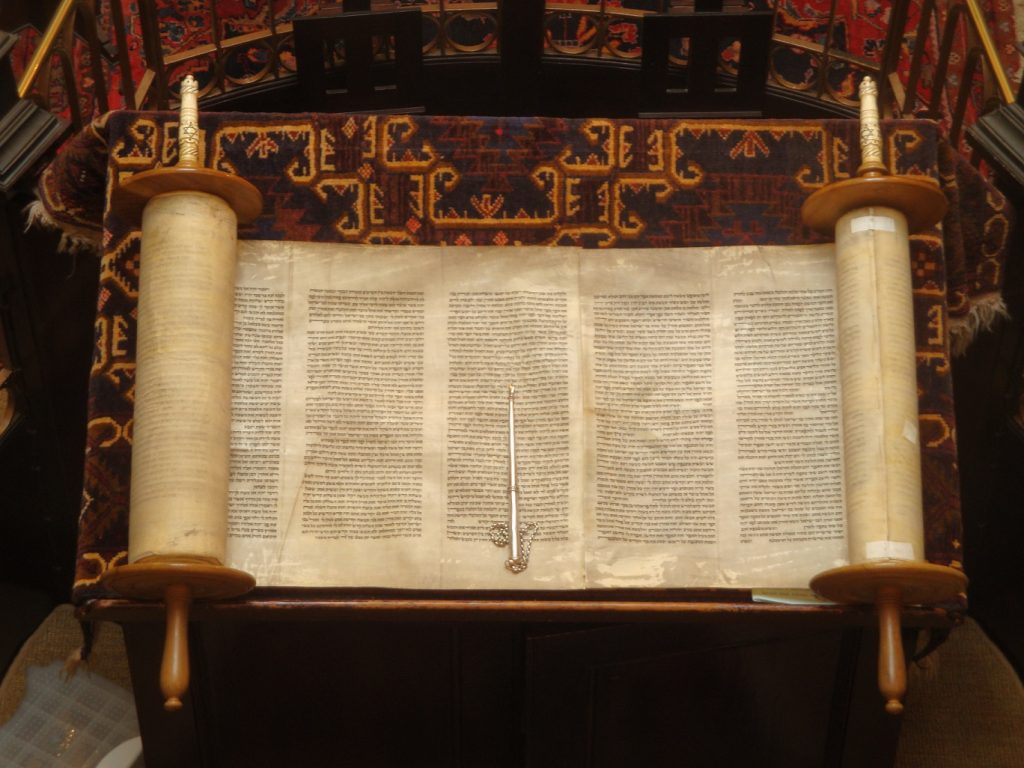
The Influence of the Dark Ages
Judaism Astrology in the dark ages spanning between the eight to the tenth century had books written by several famous Jewish astrologers. You can also find well-known astrological treatises and manuscripts in the Hebrew translation even today. Several books written on astrology were also translated into Latin towards the end of the dark ages. A good number of works were also translated into Spanish and Arabic versions. In fact, Ibn Ezra and Abu Dāʾūd were themselves considered master translators during those times.
The Middle Ages
Medieval Jewish scholars were well-versed in astrology and were also the authors of commentary on Sefer Yeẓirah. The teaching also gave special importance to the history of astronomy and astrology. Hence, the study gave way to the influence of the seven planets on the world. It was a proven way to show that each day depended on the conjunction of two superior stars. Abraham also concluded that the stars’ positions enabled predictions of life events in an accurate way.
Does Judaism Believe in Astrology?
Astrology in Judaism states that it is a force god introduced to connect spiritual forces with the physical world. There is a science behind this belief and people are influenced by these supernatural factors. In spite of the significance, the Torah rejects the study of astrology and inquiring about the future. The Torah further states that though such practices assisted in discovering possible future events, astrology was an evil way to do so. The argument goes that it is a forbidden way to arrive at conclusions rather than turning to god himself.
It continues that God will send prophets to let everyone know about his will and his plans for our future. According to the Torah, you will be complete and wholehearted with complete trust in God instead of predicting the future yourself. In short, trust him and give your prayers and he will take care of our worries in his capable hands.
The Presence of Jewish Astrologers in the Courts of Christian Kings and Popes
A large number of royal capitals in Southern and Western Europe had elite Jewish astronomers and astrologers. They served as court astrologers and, also as physician astrology consultants to popes like Alexander VI and Leo X. Following their orders, they expressed their opinions based on a deep study of celestial bodies, about their influence on human lives and the happenings of specific events. A famous Jewish astrologer is also said to have predicted the appearance of a Messiah in 1505.
Hebrew Calendar in Correlation to the Zodiac Signs
In Judaism Astrology, here are the 12 constellations of the Zodiac in relation to the 12 months of the Hebrew calendar:
| Hebrew Month | Gregorian |
| Nisan | Aries |
| Iyar | Taurus |
| Sivan | Gemini |
| Tammuz | Cancer |
| Av | Leo |
| Elul | Virgo |
| Tishrei | Libra |
| Cheshvan (or Marcheshvan) | Scorpio |
| Kislev | Sagittarius |
| Tevet | Capricorn |
| Shevat | Aquarius |
| Adar | Pisces |
Interestingly, a select few Jewish scholars also relate the 12 Zodiac signs with 12 sons or tribes of Israel. A leap month added seven times in the 19-year cycle ensures the holiday of Passover always falls during spring. So, the 12 lunar months have 29.53 days each. The modern Hebrew calendar, hence, takes a definite form based on mathematical calculations.
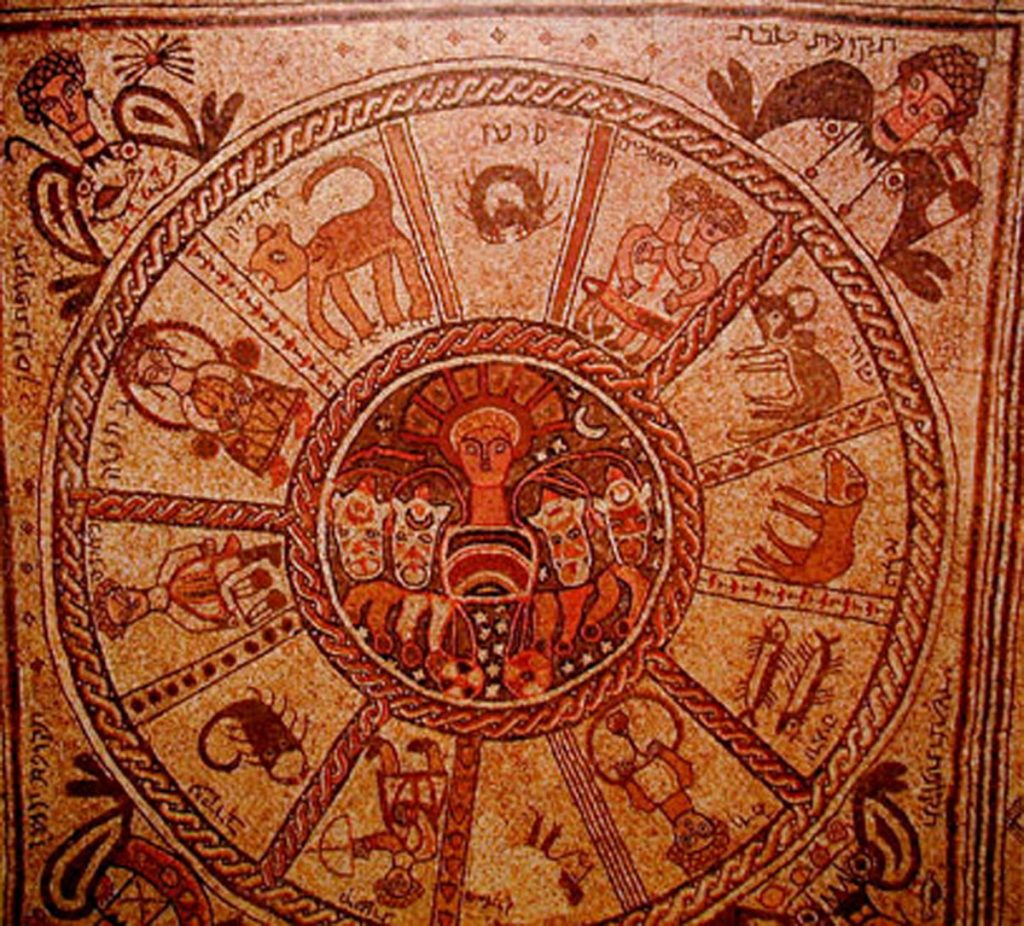
What About Planetary Correspondences?
A significant part of Astrology in Judaism is also about the ten sephirot that correspond to a specific astrological feature. It’s based on Kabbalistic astrology system in Judaism that also interprets a person’s birth chart through a deeper study. These are:
| Sephira Name | Planetary Correspondence | Astrological Sign |
| Keter | Neptune | Infinite light |
| Chokhmah | Uranus | The Zodiac |
| Binah | Saturn | Capricorn, Aquarius |
| Chesed | Jupiter | Sagittarius, Pisces |
| Gevurah | Mars | Aries, Scorpio |
| Tiferet | the Sun | Leo |
| Netzach | Venus | Taurus, Libra |
| Hod | Mercury | Gemini, Virgo |
| Yesod | the Moon | Cancer |
| Malkuth | Earth | Ascendant/Houses |
The Remains of Astrology in Jewish Folklore
Vestiges of ancient astrological beliefs remain in Jewish religious literature in modern times. Hence, astrology in Judaism in the current times mark joyful occasions with people congratulating each other by wishing mazel tov, which means good luck. An individual who is successful is called bar-mazzal, meaning one of luck. He/she who experiences perennial failure is referred to as ra-mazel signifying poor luck.
Mondays are ruled by the moon and Wednesdays by Mars. Astrologers stress the importance of fasting during the death anniversary of a parent. This is due to the fact that on that particular day, a child’s luck is very vulnerable. Marriages take place only in the first half of a month when the moon is waxing. Certain practices also encourage the setting of a bed in a mother’s room when her son undergoes circumcision. The belief was for the son to enjoy good luck during such occasion.
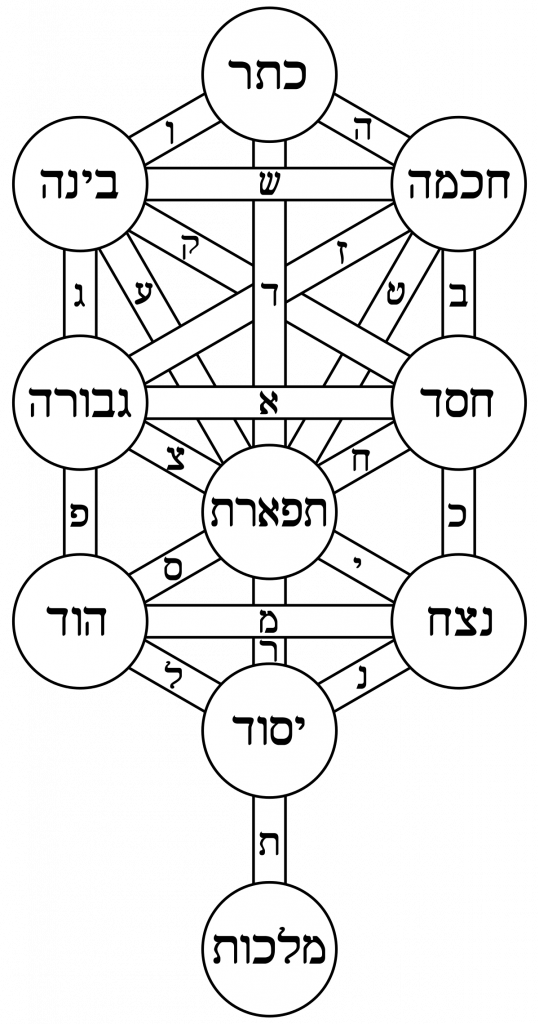
The Takeaway
Wrapping up, Judaism believes in astrology but prohibits people to enquire about it. Hence, it isn’t considered very accurate for Jewish people. They believe that only God gives the best things in life.




